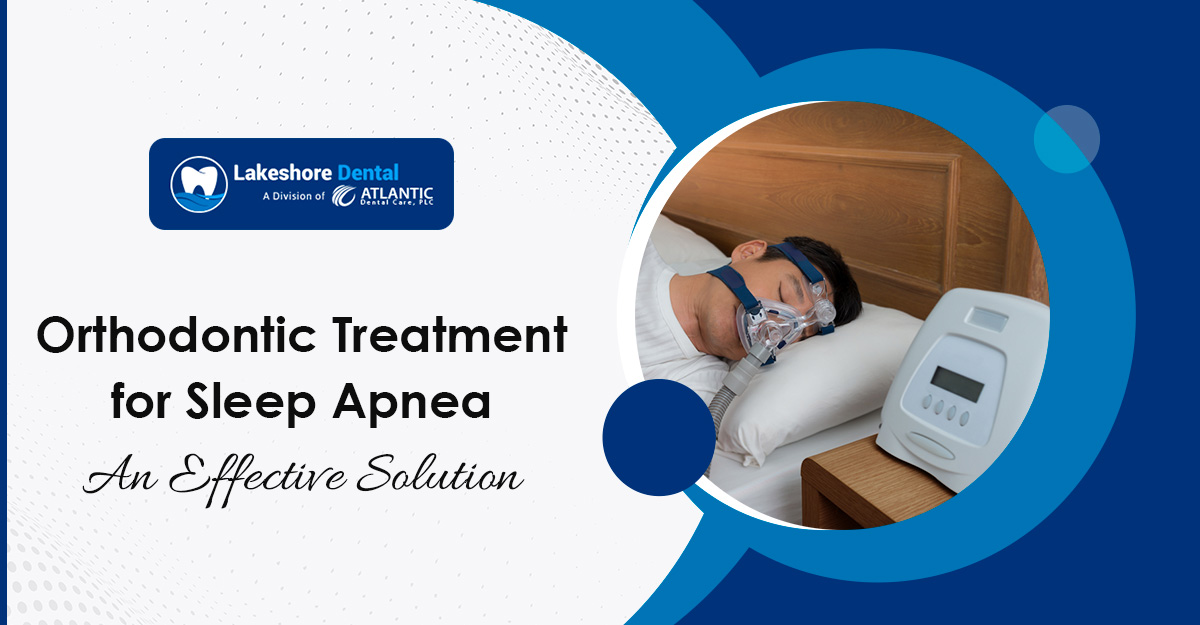
Sleep apnea is a common sleep disorder that affects millions of people worldwide. It is caused by the relaxation of muscles in the throat during sleep, which leads to the narrowing or complete closure of the airway. This results in repeated episodes of interrupted breathing and poor sleep quality, which can lead to serious health issues.
Thankfully, there are several treatment options available to manage sleep apnea. One of the most effective solutions is orthodontic treatment.
Orthodontics involves the use of braces or aligners to straighten teeth and correct bite issues.
But how can orthodontic treatment help with sleep apnea? Let’s explore.
What Causes Sleep Apnea?
Before we dive into the benefits of orthodontic treatment for sleep apnea, it’s essential to understand what causes this sleep disorder.
There are three types of sleep apnea:
Obstructive sleep apnea (OSA):
This is the most common type of sleep apnea, caused by a blockage of the airway when the muscles in the back of the throat relax.
Central sleep apnea:
This type of sleep apnea is caused by a failure of the brain to signal the muscles to breathe.
Complex sleep apnea syndrome:
This is a combination of both obstructive and central sleep apnea.
The most common type of sleep apnea is OSA, which affects over 25 million adults in the United States alone. It is more prevalent in men than women, and obesity is a significant risk factor.
How Orthodontic Treatment Can Help Sleep Apnea
Orthodontic treatment can help sleep apnea in several ways. Here are some of the benefits of orthodontic treatment for sleep apnea:
Improved Airflow:
Orthodontic treatment can help to realign the teeth and jaw, which can open up the airway and improve breathing during sleep.
Reduces Risk of Obstruction:
By improving the alignment of teeth and jaw, orthodontic treatment can reduce the risk of airway obstruction, which is a significant cause of sleep apnea.
Eliminates the Need for CPAP:
Continuous positive airway pressure (CPAP) machines are commonly used to manage sleep apnea. However, orthodontic treatment can be an effective alternative, eliminating the need for a CPAP machine.
Addresses Other Dental Issues: Orthodontic treatment can also address other dental issues such as overcrowding and misalignment, which can contribute to sleep apnea.
Orthodontic Treatment Options for Sleep Apnea
Orthodontic treatment for sleep apnea may include:
Braces:
Braces can be used to straighten teeth and improve jaw alignment, which can improve breathing during sleep.
Aligners:
Clear aligners, such as Invisalign, can also be used to correct teeth and jaw alignment issues.
Palatal Expanders:
Palatal expanders can be used to widen the upper jaw, which can increase the size of the airway and improve breathing.
Surgery:
In some cases, surgery may be necessary to correct severe jaw misalignment or airway obstruction.
Conclusion
Orthodontic treatment can be an effective solution for managing sleep apnea. By improving teeth and jaw alignment, orthodontic treatment can open up the airway, reduce the risk of obstruction, and eliminate the need for a CPAP machine. It’s important to consult with an orthodontist to determine the best treatment option for your specific needs.
In conclusion, if you’re struggling with sleep apnea, consider orthodontic treatment as an effective solution.

